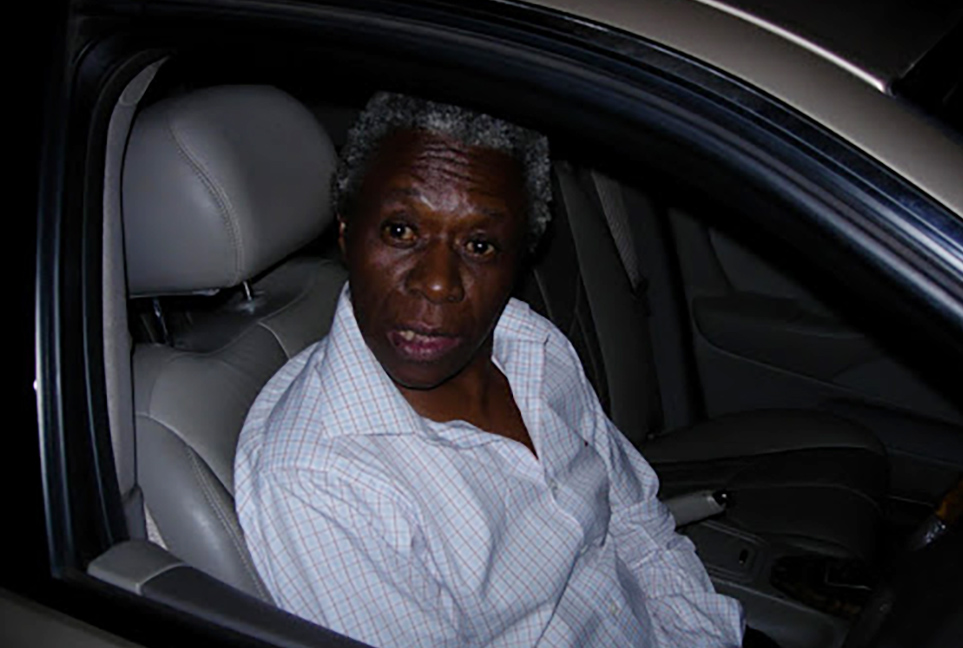JUDICIAL MISCONDUCT
JSC ‘protecting’ retired judge Motata, charges Freedom Under Law

The Judicial Service Commission has defended its decision to find retired judge Nkola Motata guilty of misconduct, allowing him to retain his salary and benefits as a judge.
The Judicial Service Commission (JSC) will argue its case before the Supreme Court of Appeal in Bloemfontein, after Freedom Under Law brought a review application over the commission’s decision. The organisation wants Motata found guilty of gross misconduct, which would mean he no longer qualifies for salary payments for the remainder of his life.
Retired judges are paid their full salaries and benefits after they retire, for the remainder of their lives.
Motata retired in 2018, a decade after a drunk driving incident that became a national talking point. On 16 January 2007, he crashed his car into the boundary wall of Richard Baird’s Hurlingham home in Johannesburg. In 2009, he was convicted of driving under the influence and sentenced to a fine of R20,000 or 12 months in prison.

Judge Nkolo Motata in his vehicle at the scene of the accident on 16 January 2007, where he crashed his car into the boundary wall of Richard Baird’s Hurlingham, Johannesburg, home. (Photo: Supplied)
During the trial, it emerged that Motata had an exchange with Baird during which he referred to him as a “boer” and Baird allegedly responded with the k-word. Part of the exchange was recorded on Baird’s cellphone.
Motata had also said: “It is not a problem that I can pay for the wall but he must not criticise me. There is no boer who will criticise me.”
After Motata was convicted and sentenced, AfriForum laid a complaint with the JSC over Motata’s conduct at the scene of the crash, calling on the JSC to find him guilty of gross misconduct for racial comments. A second complaint was laid by Johannesburg advocate Gerrit Pretorius SC, which the JSC has called “tainted”.
Now Freedom Under Law (FUL), a public interest organisation founded by retired judge Johann Kriegler, is calling on the Supreme Court of Appeal (SCA) to rule that the JSC should either rehear the complaints or find Motata guilty of gross misconduct. FUL lost its initial case in the high court and as a result, approached the SCA.
Language complaint
FUL argues that the JSC should uphold the decision by a Judicial Conduct Tribunal that found that Motata was guilty of misconduct. The tribunal is empowered by the JSC Act to hold inquiries, which it did in this case, and submit findings to the JSC.
“The Tribunal concluded that: Judge Motata’s remarks ‘were racist and thus impinge on and are prejudicial to the impartiality and dignity of the courts’.”
FUL also argues that the tribunal was not convinced that Baird had used the k-word in his exchange with Motata:
“The Tribunal finds not only that Mr Baird did not use the k-word, but that Judge Motata embarked on a ‘deliberate racially motivated strategy chosen by the Judge to get the police officers on his side and to alienate Mr Baird’. The majority report (of the JSC) does not acknowledge these findings, let alone explain why it rejected them.”
FUL also quotes the tribunal finding that Motata had allowed the defence in his trial to be conducted with a “lack of integrity” which “is incompatible with or unbecoming of the judicial holding of office”.
“The JSC protected the judge rather than the judiciary,” the organisation’s lawyers say in heads of argument before the SCA.
FUL argues Motata’s conduct should have been measured against the requirements of the Judicial Code of Conduct. Section 5 of the code, which came into effect in 2012, calls on judges to “act honourably”, be in compliance with the law and uphold equality in both their professional and private life.
“First, the JSC must assess the relevant judges’ conduct against the standards of judicial conduct encapsulated in the Code. Second, if a breach of the standards has occurred, the JSC must make a value judgment ‘whether a person, who behaved in the proven manner, is fit for purpose in a judicial role’…
“This requires the JSC to, among other things, ask whether the conduct is so destructive of impartiality, integrity and independence that the public’s confidence in the judiciary or the judiciary itself would be sufficiently undermined to render the judge incapable of performing the judicial role.”
The JSC, on the other hand, argues that despite the tribunal’s finding, the JSC is the only body empowered by the Constitution to make a finding on the conduct of judges and discipline them.
“The South African public, based on the history of this country, would certainly never take kindly to the use of the k-word against Africans and would equally not judge harshly those who react to it,” JSC lawyers argue.
“This is a fact that cannot be divorced from the incident, the investigations and the outcome of the matter. It is not for (Freedom Under Law) to seek to water down the egregiousness of the word k**fir and further dictate how one responds when confronted with the minimisation of their humanity.”
The JSC argues that it needed to take into consideration the full background in the case when making its finding.
“The distinction between gross misconduct and ordinary misconduct is not given by legislation precisely to allow the JSC to exercise their discretion on a case-to-case basis,” the JSC argues.
Tainted complaint
The JSC says it could not consider the second complaint, which focused on Motata’s conduct during his trial, because of the way it came about.
One of the JSC commissioners, advocate Smuts, had alerted advocate Gerrit Pretorius of certain deliberations within the JSC that prompted Pretorius to lay a complaint.
“The irregularity that arose in the process not only tainted the process, but had the effect of bringing into question the integrity of the processes of the JSC,” the JSC argues in court papers.
“One can appreciate the catastrophe that would have arisen if the public and judges alike, who are subject to the processes of the JSC, cannot trust that there will be fairness, impartiality and that all members will act without prejudice.
“That would not only taint the credibility of the decisions of the JSC, but also affect the willingness of participation in the processes. And this is how the Pretorius SC complaint ought to be viewed.
“It was a poisoned well, and one simply cannot drink the water of such a well and expect to see no consequences by simply stating, we can take out the poison. The poison spreads through and the public ought to see decisive action on the part of the JSC.”
Meanwhile, FUL argues that the JSC should not have dismissed the Pretorius complaint since Smuts was only involved in a portion of the JSC process.
“He was not part of the Tribunal that heard the complaint… He was also not part of the JSC that considered the JSC’s report and made the final decision,” Freedom Under Law argues.
“FUL submits that, much like with public prosecutions, the public interest in effectively disciplining judges and the maintenance of judicial independence demands that the focus on the inquiry should be on the merits of the complaint, not its provenance.”
Motata is not participating directly in the case, which will be argued on 11 May in Bloemfontein before a panel of five judges. DM















I suspect that ex-judge Motata is royal game
Amazing how people of colour always have the race card ready.
It’s a gift.
Notate should definitely be sanctioned